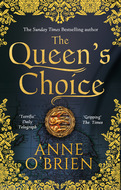Kitap dosya olarak indirilemez ancak uygulamamız üzerinden veya online olarak web sitemizden okunabilir.
Kitabı oku: «The Disappearance», sayfa 3
March 1971
Bombay, India
Audrey’s new job is in the office of the shipping firm where Janet works. She’s far too busy on the first day, meeting the other staff and learning the ropes, to think about Ralph Templeton. But, as she starts to settle in over the next few days – as she answers the phone, types the invoices, and franks the mail – she finds her thoughts returning to the handsome stranger who’d taken her number, and she’s surprised to realise that she’s hoping he’ll telephone.
‘How about we go back to that jazz café tomorrow after work?’ she says to Janet as they chat over their hot tiffins in the tea room almost a full week after their night out. She traces her finger over the Formica countertop that’s stained with rings from mugs of tea. The smell of old cigarette smoke hangs in the air and a ceiling fan circles lazily overhead.
‘Sounds like a plan,’ says Janet. ‘Any particular reason why?’ She raises an eyebrow at Audrey.
Audrey focuses on her dal bhat, the simple dish of spiced lentils and rice that she’s come to love. ‘I thought the cappuccinos were amazing.’
‘Just the cappuccinos?’
‘Yes, just the cappuccinos.’
‘Because I suspect there’s another reason you want to go back. A tall, handsome reason in a grey suit, perchance?’
Audrey feels heat rush to her cheeks. She licks her spoon and, once she decides to talk, finds that the words spill out of her. ‘Okay. Maybe you’re right. You have to admit, there was something about him. But it’s not that I want to see him. I just want to know why he hasn’t called. I mean, why make the effort to come over and give me his card and get my number if he’s not going to call?’
‘Oooh!’ teases Janet. ‘I do believe the lady’s got her knickers in a twist!’
‘I have not!’ Audrey flicks a piece of chapatti at Janet. ‘It’s just – why did he ask if he’s not going to call? Do you think I gave him the wrong number by accident? I’ve gone over it a hundred times.’
‘No. I saw what you wrote. It was right.’
‘Well, what then? Do you think it was a dare? Or did I say something wrong?’
‘No, no. It’s not you,’ says Janet. ‘He’s just a chancer. Probably got a better offer. Sorry. Ignore it. Move on.’
‘Whatever you do, don’t tell me there are plenty more fish in the sea!’
‘Well, there are. It’s just that maybe we’re not fishing hard enough.’
‘I’m not fishing at all. I’m hoping the right fish will offer itself up on a plate for me when the time’s right. With chips and dill mayonnaise!’
‘So romantic! But, Auds, we’re twenty-seven. I hate to tell you, but the fish are offering themselves to girls a lot younger than us. To some men, an unmarried twenty-seven-year-old is a scary proposition. We’re going to be thirty soon. Thirty! They imagine all we want to do is tie them down and get ourselves pregnant.’
‘Seriously?’
‘’Fraid so. I’ve heard it from guys. Sometimes I pretend to be twenty-three because, as soon as they find out how old I am, they run a mile. I worry about it. I worry that I’ll never meet the right one. That I’ll be a mad old spinster with only cats for company.’
Audrey skims off the fine skin that’s formed on her chai, then breathes in its comforting scent of cardamom and cloves. ‘There’s nothing wrong with that from where I’m sitting. It beats sitting around waiting for the phone to ring.’
Ralph Templeton eventually calls. But not on the phone. When Audrey and Janet step out of the office on Friday evening a week later, there’s a grey Daimler parked outside, a crowd of beggars teeming around it, pawing at its sleek paintwork and tapping at its windows. As Audrey approaches, the back door of the car opens and Ralph Templeton climbs out, a bouquet of brightly coloured flowers in his hand. His suit is immaculate and there’s something commanding about him as he straightens up to his full height. Filthy street children scatter out of his way.
‘Miss Bailey,’ he says, holding out the flowers. ‘I wondered if you’d do me the honour of accompanying me to dinner tonight?’
It takes Audrey a second or two to understand that Ralph Templeton is here in person, to ask her out to dinner.
‘Tonight?’ she says. She looks down at her clothing, more office than night out. ‘It’s just I … I’m not …’
‘You look beautiful,’ says Ralph. ‘But if it makes you feel better, I took the liberty of choosing a few dresses. They’re in the car. You could pick one and change at the hotel.’ He lets this sink in. ‘I have a dinner reservation at the Taj.’
Audrey looks at Janet. Janet widens her eyes. ‘Fish,’ she mouths, and Audrey turns back to Ralph, bobbing her head as she replies, ‘Yes please. I’d be delighted to join you. Thank you.’
Ralph opens the car door wide once more. ‘After you,’ he says.
April 1971
Bombay, India
On the back seat of his Daimler, Ralph Templeton puts his arm around Audrey and pulls her close to him. She breathes in the now-familiar scent of his cologne and rests her head against his chest. He strokes her hair almost absently, letting it twine itself around his fingers, and Audrey sighs, her mind full of images of this man – this stranger – who’s shot into her life like a bolt of lightning. Was their first date really just three weeks ago?
Audrey feels her cheeks flush as she remembers the way Ralph had devoured her with his eyes over dinner that evening; the way his gaze had made her feel so gauche despite the expensive dress she’d picked. Maybe she is a little younger, less sophisticated, than the women Ralph’s used to, but he seems charmed by that. She bites her lip: thinking back, she can’t believe she’d actually given him a real phone number in the café instead of transposing a couple of digits like she usually did when men pushed for her number; she can’t believe she’d agreed to go out to dinner that night he’d turned up at her office. How life turns in an instant, she thinks.
After their first date, Ralph had bundled her onto the back seat of his Daimler and nuzzled her face until his lips found hers, then he’d kissed her all the way back to her tiny studio flat. Despite his protests, she’d refused to let him in. It’d been the right strategy, Audrey reflects now, because he hasn’t been able to get enough of her since, pursuing her with a fervour that almost verges on the indecent.
In the car now, Ralph’s hand moves from Audrey’s hair to her cheek. Applying a little pressure, he turns her face to his, stares into her eyes as if he’s searching her soul, then places his lips gently on hers, the softest of kisses that melts her. When he finally pulls away, she’s breathless.
‘Come home with me tonight, Red,’ he says.
Audrey notices, all of a sudden, that the car’s not on the usual route to her flat and a ripple of fear runs through her. She’s in the back of a car with a man she’s known less than four weeks, in a part of Bombay with which she’s unfamiliar. No one in the world bar Ralph Templeton and his chauffeur knows where she is.
‘Where are we?’ she asks, sitting up straight in her seat and trying to get her bearings.
Ralph takes her hand. ‘On the way to Juhu. I asked the driver to … please, Red. Come home with me.’
Audrey buys time by fiddling in her handbag. Does she have reason to be afraid?
‘Look at me,’ Ralph commands. He takes her chin into his hand, turns her face to his and stares into her eyes. Audrey holds his gaze, mesmerised by the apparent depth of her suitor’s feeling. ‘Nothing will happen, not if you don’t want it to,’ Ralph says. ‘This is not about sex. But please come home with me. I just want to have you there with me. To hold you.’ His voice breaks. ‘Red, I need you.’
He lets go of her face and turns away, his hand brushing at his eye and the very core of Audrey melts. There’s something about this man that makes her feel she’d run to the end of the earth if he asked her to. She leans across and places her lips on Ralph’s ear.
‘Okay,’ she whispers.
November, 2012
St Ives, Cornwall
To say that John and I were surprised when Mum left London for Cornwall would be one thing; what was even more of a surprise was the house that she’d bought on the outskirts of St Ives. The large, stucco-fronted villa we’d grown up in in Barnes had been built in 1845. After selling it four years ago when our father died – far too quickly because she’d under-priced it, if you listened to my brother – Mum had eschewed the type of picturesque stone cottage we’d all envisioned she’d go for and bought a completely unremarkable box of a home that dated back to the seventies.
Moving with a speed and certainty that had taken us by surprise, Mum had allowed us each to choose any furniture we wanted from the Barnes house, then made the move to St Ives. ‘It’s got a subtropical microclimate,’ she’d told anyone who asked her why she was moving there. ‘Why wouldn’t you?’ There was also, I suppose, the fact that John lived in nearby Penzance, though I’d long suspected that was more coincidence than intent.
I took in Mum’s house now as I parked behind her car in the driveway, gathered my things, and made my way down the steep slope to the front door. It was a low building, painted white, with double glazed windows and a neat front garden that Mum had lined with geraniums in pots. They added a certain something in summer, but not quite enough.
The rain had cleared but I still heard the irregular plop of drops falling off the trees and bushes. The garden was saturated. I knocked on the front door: two smart raps of a silver-toned knocker that made a hollow sound on the thin door. While I waited, ears straining for the sound of footsteps, I bent down and examined the front step. I’d noticed a while back that a brick had come loose and was wobbly to stand on. I’d asked John to cement it back down. He hadn’t: the step still wobbled. I straightened up again, put my finger on the doorbell and pressed. Big Ben rang out electronically and I cringed inside, remembering both the substantial door and the majestic ring of the bell on the house in Barnes. After waiting another moment, I realised that Mum might not even be able to make it to the door. Kicking myself for being so stupid, I walked around the side of the house for the spare key, my shoes squelching on the wet gravel path.
I paused for a moment on the threshold of the garden. It was around the back that Mum’s house came into its own: by itself, the small garden was unremarkable – it was only once I’d seen the view that I understood why Mum had fallen in love with the house. I drank in the view now: the sandy reach of Carbis Bay lay below and, curving into the distance, I could see Lelant and subsequent coves: the scalloped edge of England. Even on a dismal November day it was something really special. Today the sea looked grey-green but, in summer, it was an endless sweep of azure blue that was more Mediterranean than Atlantic. The previous owner of the house had installed decking that wrapped around the sea-facing aspects. Mum had bought some nice outdoor furniture and she claimed to spend part of every day out there, no matter what the weather. My city-dwelling mum, it turned out, loved the sea.
I scrabbled under another plant pot for the spare key, then let myself in the front door, dropping my bags and slipping off my wet shoes in the hall before padding quietly into the living room. Mum was on the sofa, propped up on a pile of cushions, her laptop open on her lap. She looked fragile, her face as pale as the brace that circled her neck, but, aside from that, I could see no physical evidence of an injury; no bruising, no extra bandages. I walked across the room to her and looked down at her. I couldn’t tell if she was asleep or awake.
‘Mum?’ I asked softly.
She slowly lifted her eyes to meet mine. ‘Alexandra. Hello! How lovely to see you. You really didn’t need to come.’ She tapped the mousepad a couple of times, then closed the lid of the laptop.
I perched on the edge of the sofa and looked at her. ‘Of course I was going to come. John said someone had to stay with you and it was my turn. How are you feeling?’
Mum touched the neck brace. ‘I’m fine.’ I raised my eyebrows at her. ‘Really, I am. This is just a precaution. In fact, I’ve got to go back tomorrow and have it taken off. They’re just playing it safe.’ She gave me a bright smile. ‘It looks worse than it is. I promise you I’m absolutely fine or they wouldn’t have let me out.’
‘I’ll take you in tomorrow.’
Mum nodded. ‘Thank you.’
‘You’re welcome. You look a bit pale, but I suppose that’s the shock. Are you in pain?’
‘No.’
‘Mum. Don’t lie.’
She sighed. ‘Okay, well, maybe just a little. It aches a bit, that’s all. I feel as if I’ve been knocked about a bit in a road accident.’ She laughed.
‘Mother! This is a serious thing. At your age! You’re so lucky nothing was broken. What happened?’ I tutted. ‘I should never have let you drive back last night. Were you tired? You didn’t seem tired.’
Mum didn’t reply. She was staring at the wall, then she turned to look at me.
‘Was I a good mother?’ she asked. ‘To you and John?’
I leaned back on the sofa. ‘Whoah! Where did that come from?’
‘I just wondered,’ Mum’s hands fretted at the fringe of the sofa blanket. ‘Seeing those pictures last night … it brought it all back. My time in India … when you were babies … coming back to London.’ Her voice trailed off. ‘Did you feel loved as you were growing up?’
I hesitated – a whisper of a moment – but Mum appeared not to notice. ‘Yes, of course,’ I said. ‘We never wanted for anything.’
And it was true – to an extent. Mum had done everything by the book when John and I were growing up. It was as if she’d read a manual on how to be the perfect mother. She cooked and cleaned and picked us up from school; she sewed, helped us with our homework, and took us to the park – but I’d always felt as if she’d wrapped her heart in cling film. I’d always felt it was as if, when I hugged her, I wasn’t ever touching the real her; as if there was always something of herself that she held back.
‘But …’ Mum looked at me so intently I felt she could see what I was thinking.
‘But what? What’s all this about?’ I asked. ‘Are you worried we’ve turned out badly?’ I laughed.
‘No. No, it’s nothing. Forget I spoke.’ Mum shook her head and gazed off into the middle distance.
I stared at the carpet. Mum and I never had conversations like this. ‘So what happened?’ I said finally. ‘The accident? Was it because you were tired?’
She looked at me as if only just realising I was in the room. ‘Oh! No. No, I was fine … I stopped at a roundabout and some clown drove into the back of me. It wasn’t my fault.’
‘Is that what the police said?’
Again Mum didn’t reply. She was staring at her hands, examining her fingers.
‘So – did you stop suddenly or something? At the roundabout?’
‘What?’ said Mum.
‘Did you stop suddenly?’
‘Oh, yes. Yes. I was approaching the big roundabout near home. You know the one? I was about to enter it and then I don’t know what happened. Someone came flying around. I don’t know where he came from. I suddenly saw him. I braked but the guy behind didn’t stop in time.’
‘So he rear-ended you?’
‘Yep.’
I imagined Mum’s head whipping forward and back. ‘Okay, well. If he rear-ended you, it’s his fault.’
‘Yes, that’s what the police said.’
‘Good. And it’s good they put you in the brace. At least for tonight. I’m glad you’re okay.’ I stood up and stretched, bending my neck left and right. The traffic down to St Ives had been stop-start the whole way and my shoulders ached. ‘Can I get you anything? Have you eaten? I’m going to make myself a cup of tea and, if you don’t mind, I’ve brought some marking to do. If I don’t do it tonight, I’ll be in trouble.’
There was a silence. I looked at Mum – she was staring off into the distance again. I felt for my phone, thinking I must text John about this. He was right. Mum was clearly not herself. Whether or not this was related to the accident I had no idea. I was ashamed to realise I hadn’t been down to see her for over two months.
‘Mum? Would you like anything? Some tea?’
Mum gave herself a little shake. ‘Yes, thank you. A cup of tea would be lovely.’
‘And what about food? Shall I get some stuff in for you? Easy things for your dinners?’
‘Oh, no need for that, dear! I’ll be right as rain in a day or two.’
‘But – I don’t know. Should you be driving? Carrying heavy bags? Wouldn’t it be easier if I nipped out and got you some bits that you could just bung in the microwave for this week?’
‘I’m not helpless.’
‘No, I know. But can you please just admit it would be easier if I got you some ready meals? You can get good ones these days. Fresh. Almost like home cooking.’
Mum bowed her head. ‘Thank you.’
‘Okay. So what do you like? Curries? Indian? Thai? “Chicken or beef”?’ I smiled like cabin crew.
‘A shepherd’s pie would be nice, maybe. And, yes, why not a curry or two? Spicy, thank you, dear.’
‘Do you need anything else while I’m there?’
Mum shook her head.
‘How about milk? You’ve got eggs. You could make an omelette one night?’
‘Oh yes. Maybe some milk. To see me through. Thank you. And I think I’m low on cheese.’
I smiled. ‘Back in a bit.’
‘Thanks, dear.’
As I headed to the front door, I looked back at Mum and immediately wished I hadn’t: lying on the sofa in her neck brace she looked small, and so very frail.
Back in the car I texted John. ‘You’re right. She’s not herself. V vague. Gazing into distance.’
He texted back at once. ‘Told you.’
‘But is this the accident? Or was she like this anyway? I don’t remember.’ I put the blushing Emoji.
‘Bit of both. She’s getting old.’
‘70 next year.’
‘I know.’
July 1971
Bombay, India
‘You’ve changed.’ Janet taps her teaspoon on the saucer of her coffee cup and looks thoughtfully at Audrey across the table. They’re once again in the jazz café – it’s become their regular post-supper haunt, with Janet making no secret of the fact she hopes that she, too, will meet her own rich lover among the clientele.
‘In a good way, I hope!’ Audrey laughs, but even she hears the question in her voice. She lifts her cup to her lips and takes a tiny sip.
Janet pouts thoughtfully. ‘You’re more confident.’
‘That’s a good thing, isn’t it?’
‘Yes. Yes, of course. And you look amazing. You’re glowing.’
It’s the sex, Audrey thinks. She looks at her coffee. ‘Well, I do feel better than I have in months. Years! Oh Janet, he’s the best thing ever to have happened to me. Honestly, I always used to think how could so many terrible things happen to me – surely it was my turn to have some good luck – and along came Ralph!’
‘I’m so glad you’re happy,’ Janet says, but Audrey sees a hardness in her friend’s eyes. She looks at her closely; it’s not jealousy – it’s something else.
‘Thank you,’ she says. ‘He’s just so …’ Audrey waves her hand in the air, struggling to articulate how she feels about Ralph – how different he is; how her love for him consumes her. ‘I don’t know: perfect?’
Janet touches Audrey’s hand. ‘Just be careful. All right?’
‘What do you mean “careful”? I’m on the Pill.’
Janet tuts. ‘Not that kind of careful. Well – that kind of careful too. Just don’t lose yourself in all this.’ She stops talking but Audrey doesn’t reply. ‘It’s just – there’s something about him. I don’t know.’
‘Something about him? Looks, personality, charm – where do I start?’ Audrey tinkles a laugh.
‘Not like that. I mean, he’s too good to be true. Men like him just don’t exist. Trust me, I’ve a lot of experience.’ Janet gives a rueful laugh.
‘But he does exist, and he really is that good. I’ve been to his house. Many times. What you see is what you get with Ralph.’ Audrey looks around the café, keen to change the subject now it’s taken this turn. ‘Look! Did you see that chap over there? What a dreamboat …’
Janet gives a cursory glance then turns back to Audrey. ‘Men like Ralph Templeton … they usually have something to hide,’ she says. ‘Really, Auds. I’m shure there’s something he’s not telling you.’
Audrey sucks her teeth and stares at her friend. The noise of the café behind her – the sounds of conversation, laughter and jazz – falls away as she realises that she’s at a crossroads in her life; that this conversation is somehow seminal – something she’ll look back on in years to come. She badly wants her friend’s approval but she knows, too, that her relationship with Ralph is bigger than her friendship with Janet will ever be, and that, should she be forced to choose, her lover will be the one who’ll win.
Audrey sighs. How can she explain to Janet what it is that Ralph Templeton does for her? How could she explain what it feels like to have no one in the world who loves her? How she misses having her father there to keep everything under control, and to offer advice and comfort? Would Janet understand if she told her how her insides know an emptiness that goes beyond life itself? Ralph Templeton is her antidote; he fills her veins with hot, red blood; he brings life back to her. Janet herself has noticed how Audrey’s changed – blossomed – since she got together with him. And on top of that, he’s so knowing, so worldly wise, so confident – he fills a little of the gap that yawns inside her. Just thinking about Ralph makes her shiver with anticipation of when she’ll next see him.
‘He takes such good care of me,’ she says.
‘That’s nice,’ Janet’s voice is sarcastic. ‘But don’t you find him controlling? The way he calls you “Red”?’ She shudders and Audrey recoils: her dad had called her mum ‘Mousie’ and she’d always thought it was sweet. But Janet is on a roll. ‘The way you always do what he wants? You never get to choose where you go or what you do. The way he drove you to his house without asking you till you were right outside? Even the way he came over demanding your number that day. It’s like he won’t take no for an answer.’
‘I quite like that,’ Audrey says.
‘You want to be careful, though.’ Janet points her finger at Audrey. ‘One day controlling, the next you’re not allowed out. It’s almost like he sees you as a possession.’ She shakes her head. ‘The way he sends his car to pick you up all the time. My word!’
Audrey closes her eyes and recalls the cool, leather interior of the Daimler. It’s nice that Ralph sends the car for her. Especially when the rain’s throwing it down as it has been this month. Really, she has no problem with that.








